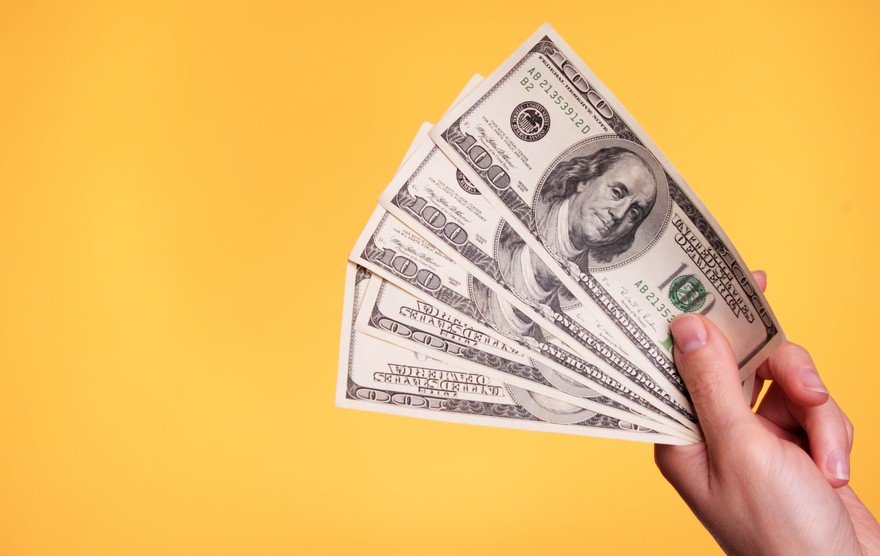When you put your money to work by investing in the stock market, you're taking on some risk that you'll lose some, maybe all, of that money. Losing everything is an unlikely scenario, especially if you stick to using a basic cash account. But, if you add leverage to your stock trading, the risk substantially increases.

So can you owe money on stocks? Yes, if you use leverage by borrowing money from your broker with a margin account, then you can end up owing more than the stock is worth.
What is an ETF?
With a standard margin account, the broker will loan you up to 50% of your total account value. So, if you deposit $10,000 in cash and securities, the broker will offer you up to $5,000 in additional buying power you can use to purchase stock.
Margin accounts allow you to buy shares of a stock, funding the purchase with up to 50% debt. So, if you wanted to buy a stock for $100, you could put $50 of your own money in and borrow $50 from your broker. Keep in mind, though, that interest will immediately start accruing on your loan.
But, if your stock falls to $40 in price, you'll still owe $50 to your broker. Selling the stock, however, only raises $40. In order to make the broker whole, you'll have to pay an additional $10. That's how you can end up owing money on a stock.
Depending on how much leverage you use for your purchases and how your other investments perform, you may end up getting a margin call from your broker. The Financial Industry Regulatory Authority (FINRA) requires you to maintain at least 25% of the total value of securities as margin. Some brokers require more. If your account dips below that threshold, the broker will require you to add more funds or liquidate your holdings.
In the above example, if that $100 stock purchase was your only holding, you'd get a margin call when your account falls to $66.67 in value, if not before. If you subtract the margin loan of $50 from that amount, you'll have $16.67 in actual equity that you own free and clear. That's 25% of the total account value of $66.67.
Cash accounts vs. margin accounts
Most beginner investors start with what's called a cash account. With a cash account, you deposit funds, and that's what you're able to buy stocks with. If you sell shares to raise more cash, you'll have to wait for the funds to settle three days later before you can use them to make another purchase.
There is more risk associated with a margin account than a cash account, making it a better choice for advanced investors than beginners.
If you're only using a cash account, your loss is limited to the amount you put in. That happens if a stock's price goes to $0.
With a margin account, you gain additional buying power. You can use that to add leverage to your trades and take on more risk, or you can simply use it to add liquidity and access funds before a trade settles. Remember that using margin is taking out a loan, and you'll owe interest on your balance, which accrues daily.
With a margin account, it's possible to end up owing money on an individual stock purchase. Your losses are still limited, and your broker may force you out of a trade in order to ensure you can cover your loan (with a margin call).
Do I owe money if a stock goes down?
If a stock drops in price, you won't necessarily owe money. The price of the stock has to drop more than the percentage of margin you used to fund the purchase in order for you to owe money.
For example, if you used 50% margin to make a purchase, the stock price has to fall more than 50% before you owe money on your purchase. If you don't use any margin at all, you'll never owe money on a stock.
What happens when a stock goes to zero?
If you bought shares in a cash account and they go to zero, you're only out what you put in. If you used margin, you now have $0 in equity and whatever the balance is on your margin loan, so you owe money.
If you short a stock and it goes to zero, you've earned the maximum possible return on your investment. You can keep all the cash raised from selling short. You can only sell short in a margin account.
Related Investing Topics
Can stocks go negative?
The lowest a stock price could possibly go is $0 per share. Even if the value of the stock is negative, meaning you'd have to pay someone to take the shares off your hands, it would never make sense to pay someone to take ownership of stock since it doesn't require any resources to hold. That is, there's no cost to own stock with negative value, so there's simply no trading and the price goes to $0.
































































































































































































































